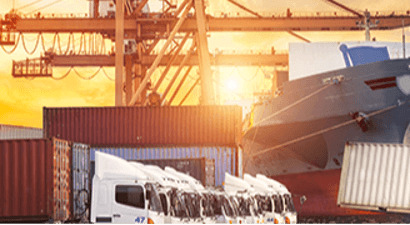Are you planning to move overseas in 2020? Here's what you need to know about shipping via sea-freight.
There are two ways to transport your household or personal goods to another country, i.e. by way of air freight or sea freight. the latter being the most common and cost-efficient way to transport your goods to another country. If you elect to ship your goods by way of sea-freight, you can either choose to utilise a full container for your goods or you can share a container with other shippers. The question is, which one is for you?
These two main modes of container shipments are known as a Full Container Load (FCL) and a Less than Container Load (LCL). FCL refers to shipments where the goods, which occupy the entire space of the container, are consigned by a single party or entity, known as “the shipper”. LCL refers to shipments where goods are consigned by multiple shippers’ and are packed together in one container. There are various factors that need to be considered when planning on which mode of container shipment should be utilised. However, the decision often comes down to the quantity of goods being moved and whilst the quantity of goods appears to be the main deciding factor, it is important to know the differences between both options and the risks associated thereto.
There are differences and risks between the two main modes of container shipments such as the volume (as discussed above), costs, security of the goods, the urgency of the shipment, and the risk of damage to the goods. It goes without saying that an LCL shipment is usually a better option for a low volume shipment whilst an FCL shipment will be a better option for a high-volume shipment. In respect of the shipping rates for both types of shipments, there is usually a flat rate for each FCL shipments whilst LCL shipments are usually charged per cubic meter.
The carriers (the ship owner or operator) generally charge a set rate per container, as long as the full container is not overweight within given parameters. FCL shipping rates can in some circumstances be more volatile but it should be noted that the charge for goods shipped in LCL containers, is generally levied by a consolidator, not the ship owner unless the specific carrier offers that service. The consolidator books cargo from several intended shippers with smaller volumes of cargo to ship, generally collects the cargo from the shipper, transports it to a warehouse and then packs it into a container, with other parties’ cargo.
A separate bill of lading (known as a “house” bill of lading), is then normally issued by the consolidator to each customer, just for that party’s goods as detailed in a packing list. If the goods out turn at destination in a damaged condition, the owner of the cargo then must look to the consolidator or named carrier in the house bill of lading. Generally the per cubic charge for LCL shipments is therefore more expensive per individual item, as the cost of collection, packing and transportation to the ship, are added to the consolidators freight charge, to include what he is charged in turn by the Ocean carrier for carriage of the container itself.
As a shipper, you would want your goods to be safe and secure, especially if your goods are moving across the ocean and into another country. When it comes to FCL and LCL shipments, the level of safety and security varies between the type of shipments. An FCL shipment is usually more secure than an LCL shipment as the shipper has exclusive rights to the entire container which means that the goods are not in contact with other cargo from other shippers and the container itself is sealed before shipment. This reduces the risk of damage to the goods, contamination from other goods and even theft of the goods. However, LCL shipments may, in certain instances, be the safer option for certain shipments as the goods will normally be more compactly packed, increasing the safety of the goods within the container.
Another factor impacting your decision, would be the factor of time and the level of urgency. Some people are required to move countries within a month whilst others are given an opportunity to make the move within a period. FCL shipments are often used for urgent shipments or shipments that need to arrive in another country before a fixed date. LCL shipments are generally used for shipments with flexible dates as such shipments are prone to more delays due to multiple handlings of the goods and the need to transport the goods for consolidation well before the shipment date.
Before making an informed decision, it is advisable to contact your chosen international moving company, who will be able to provide you with specific information such as the procedure involved, forms to be completed, insurance and the current shipment costs and they will also generally undertake the packing of the goods into the container, or procure that service for you by third parties.





